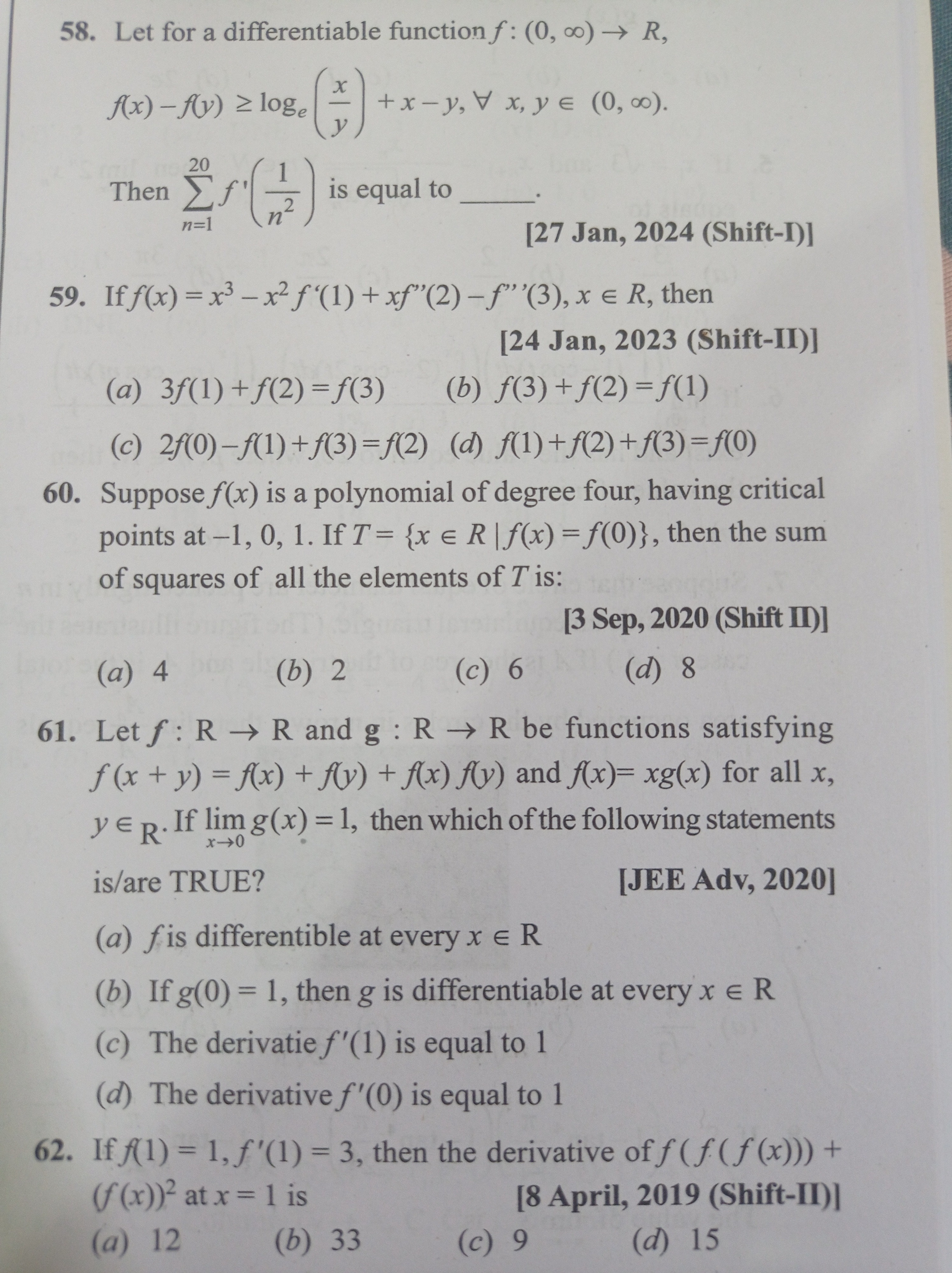Question
Question: Let for a differentiable function f: (0, ∞) → R, $$f(x)-f(y) \ge log_e(\frac{x}{y})+x-y, \forall x,...
Let for a differentiable function f: (0, ∞) → R,
f(x)−f(y)≥loge(yx)+x−y,∀x,y∈(0,∞).
Then
∑n=120f′(n21) is equal to ____.

2890
Solution
Given the inequality f(x)−f(y)≥loge(yx)+x−y,∀x,y∈(0,∞). Rearrange the inequality: f(x)−f(y)−(x−y)−(logex−logey)≥0 Consider a new function g(x)=f(x)−x−logex. The inequality can be rewritten as g(x)−g(y)≥0.
Case 1: Let x>y. Then g(x)≥g(y), which implies x−yg(x)−g(y)≥0. Taking the limit as x→y+: g′(y)≥0.
Case 2: Let x<y. Then g(x)≤g(y), which implies x−yg(x)−g(y)≤0 (since x−y<0, the inequality sign flips). Taking the limit as x→y−: g′(y)≤0.
Since f is differentiable, g is also differentiable. For g′(y) to exist, it must satisfy both g′(y)≥0 and g′(y)≤0. This implies g′(y)=0.
Now, let's find g′(x): g′(x)=dxd(f(x)−x−logex)=f′(x)−1−x1. Setting g′(x)=0: f′(x)−1−x1=0 f′(x)=1+x1.
We need to calculate ∑n=120f′(n21). Substitute x=n21 into f′(x): f′(n21)=1+n211=1+n2.
Now, calculate the sum:
∑n=120f′(n21)=∑n=120(1+n2)=∑n=1201+∑n=120n2=20×1+620(20+1)(2×20+1)=20+620×21×41=20+10×7×41=20+2870=2890
